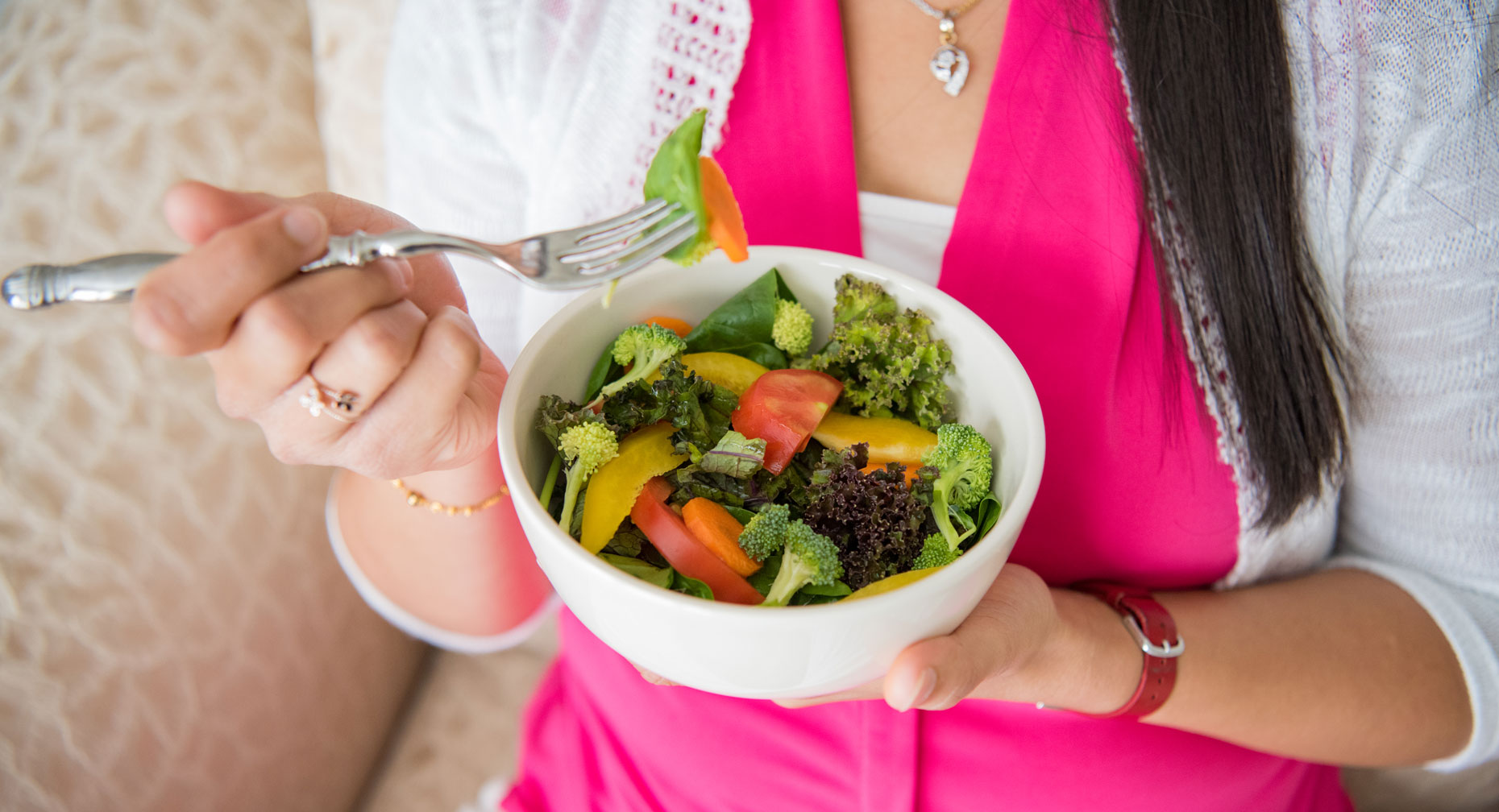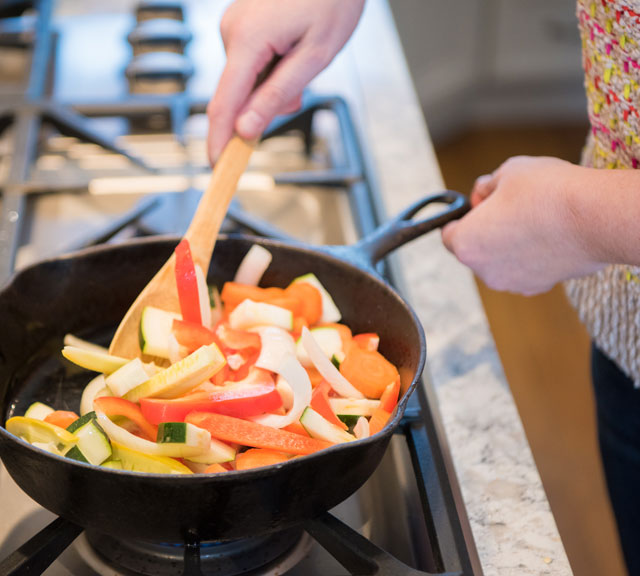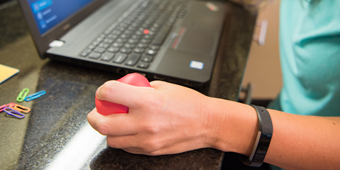Eat Smart to Deter Colorectal Cancer

Find Your Perfect Match
Answer a few questions and we'll provide you with a list of primary care providers that best fit your needs.
Everything you eat is processed in your gut, so it makes sense that the foods you put into your body affect the health of your colon and rectum. With colorectal cancer the third most common cancer in the U.S. for men and women, eating healthy is more important than ever.
“We’re seeing younger patients with full-fledged colon cancers in their 30s and 40s,” says James Ouellette, DO, FACS, surgical oncologist with Premier Surgical Oncology. “There’s no easy test to diagnose colorectal cancer. Unless the person has a symptom, they could go for a year or more before it’s detected.”
Nearly 100,000 Americans will get colon cancer this year, and almost 40,000 will get rectal cancer, says the American Cancer Society.
“Diet contributes to colorectal health on multiple levels,” Dr. Ouellette says. “We know a high-fat diet isn’t good for your colon. In the U.S., we don’t get sufficient dietary fiber. In addition, obesity contributes to colorectal cancer risk and other health issues such as inactivity, liver problems and diabetes.”
Dr. Ouellette and the American Cancer Society offer these recommendations on what to eat and not eat to reduce your risk of colorectal cancer.
What to Eat
- A variety of vegetables and fruits including leafy greens, like kale, spinach and broccoli; tomatoes, grapes, onions, beans
- Sprouted grains and whole grains rather than bleached flour
- Fiber, including lentils, beans, whole-wheat pasta, barley and brown rice. If you don’t seem to get enough fiber through food, Dr. Ouellette recommends a granular supplement with psyllium (such as Metamucil) for everyone age 40 and above and younger people who want more fiber. Pills don’t work as well, he says
- Foods with calcium, including low-fat milk and yogurt. Calcium supplements also are good. “Studies have shown that people taking calcium supplements after having colorectal cancer lived longer,” Dr. Ouellette says
- Garlic, which contains manganese, vitamins C and B6 and selenium, all nutrients with cancer-fighting properties, according to some research
- Coffee (no sugar or cream and not decaf). A recently published study says that up to four cups a day can offer anti-cancer benefits, particularly in the way it affects estrogen and insulin in women
- Plant-based proteins, such as soy products and quinoa and beans
- Fish with omega-3 fatty acids. In a 2016 U.S. study published in the journal Gut of people who already had cancer, researchers found that survival improved by 30 percent when participants had two to three servings of dark meat fish a week (such as salmon, snapper, pollock, tuna, shrimp, lobster, scallops and clams)
Dr. Ouellette also recommends cultured milk products such as kefir and yogurt to promote “good” bacteria in the colon. “Probiotics are also beneficial. They can be taken in capsules, tablets, powders, liquids or in certain foods, like kefir drinks. Anything that makes the immune system work better is a positive for colorectal health,” he explains.
“We know a high-fat diet isn’t good for your colon. In the U.S., we don’t get sufficient dietary fiber."
What to Avoid or Limit

- Red and processed meats, including beef, sausage, bacon, deli meats and hot dogs. “These have preservatives, are altered from their natural form and contribute to obesity,” Dr. Ouellette comments.
- Alcohol in excess. The American Cancer Society recommends no more than two drinks a day for men and one drink a day for women. A single drink amounts to 12 ounces of beer, 5 ounces of wine or 1½ ounces of 80-proof distilled spirits (hard liquor).
- Sugary beverages
- Foods that have a high amount of fats or calories per bite
“Smoking and using tobacco products puts you at risk for an infinite number of cancers —colorectal, head and neck, lung, bladder,” Dr. Ouellette adds.
Read more tips to prevent colorectal cancer.
Find Your Perfect Match
Answer a few questions and we'll provide you with a list of primary care providers that best fit your needs.
Source: James Ouellette, DO, FACS, Wright State Surgical Oncology; Breastcare; American Cancer Society





